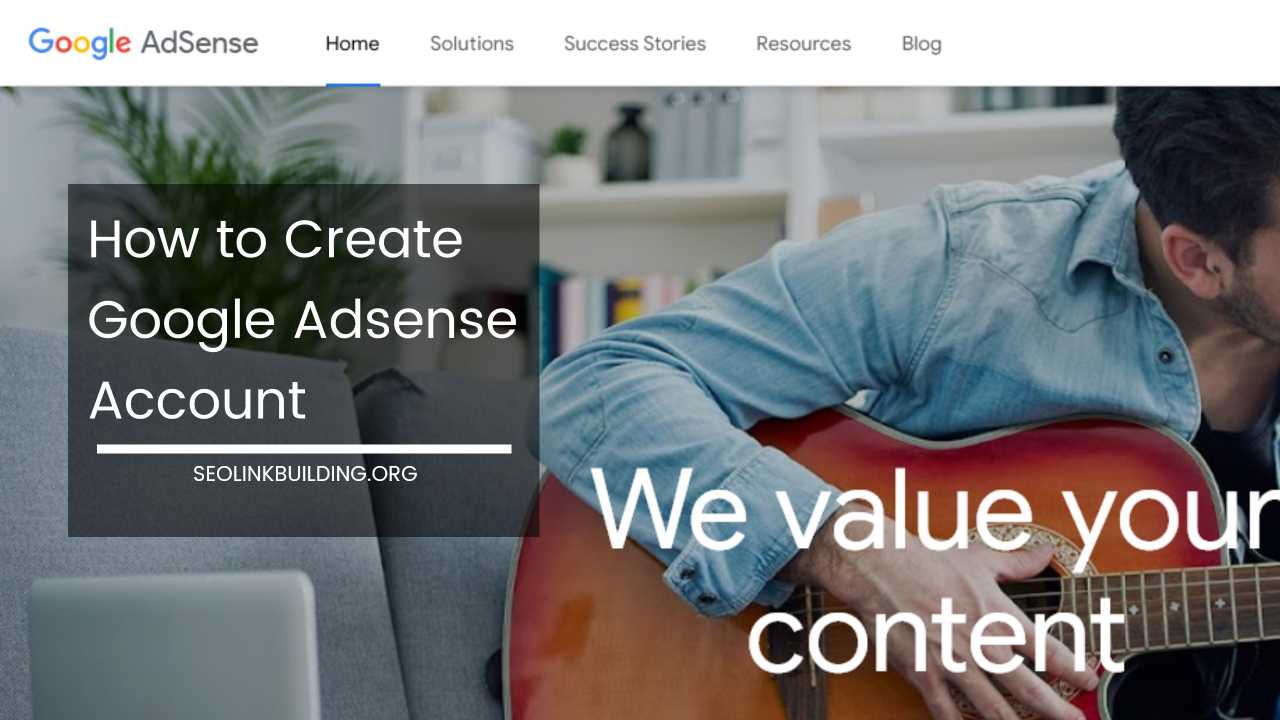How to Increase Website Authority

Website Authority
How to Increase Website Authority: A Comprehensive Guide
What is Website Authority?
Website authority is a crucial concept in the realm of search engine optimization (SEO) and digital marketing. It represents a website’s credibility and influence within its niche or industry.
Authority is often quantified using metrics like Domain Authority (DA) and Page Authority (PA), which are developed by Moz.
These metrics are numerical scores that predict how well a website will rank on search engine results pages (SERPs).
Understanding Authority Metrics
Domain Authority (DA): This metric measures the overall strength of a domain based on various factors including the number and quality of backlinks.
DA scores range from 1 to 100, with higher scores indicating a greater likelihood of ranking well in search engine results.
Page Authority (PA): While DA assesses the overall domain, PA focuses on the strength of individual pages. It is also scored from 1 to 100 and reflects the potential for a specific page to rank highly in search results.
Both DA and PA are influenced by several factors, including the quality and quantity of backlinks, the relevance of content, and technical SEO aspects. Achieving high scores in these metrics requires a strategic approach and consistent effort.
Why is Website Authority Important?
Website authority is not just a number; it plays a significant role in determining your site’s performance and visibility. Here’s a closer look at why increasing your website authority is essential:
Improved Search Engine Rankings
One of the most direct benefits of high website authority is improved search engine rankings. Search engines like Google use authority metrics to evaluate and rank websites.
Higher authority websites are more likely to appear at the top of search results, which can drive more organic traffic to your site. This visibility is crucial for attracting new visitors and gaining exposure in your industry.
Increased Trust and Credibility
Trust is a fundamental aspect of online interactions. Websites with high authority are perceived as more credible and trustworthy by users.
When your site ranks well and is recognized as a reputable source of information, visitors are more likely to trust your content and engage with your offerings.
This increased trust can lead to higher conversion rates, as users are more inclined to take action, such as making a purchase or signing up for a newsletter.
Better Backlink Opportunities
Backlinks from other websites are a key factor in building authority. High-authority websites are more likely to attract backlinks from reputable sources.
When other sites link to your content, it not only drives referral traffic but also signals to search engines that your site is valuable and trustworthy.
A strong backlink profile can further enhance your authority and improve your search engine rankings.
Enhanced Brand Reputation
A website with high authority contributes positively to your brand’s reputation. When your site is recognized as a leading authority in your industry, it strengthens your brand’s image and establishes you as a thought leader. This reputation can foster brand loyalty and help differentiate you from competitors.
How to Increase Website Authority
Improving website authority involves a multifaceted approach that includes content creation, user experience optimization, backlink building, technical SEO, and ongoing monitoring. Here’s a detailed guide to each of these strategies:
1. Create High-Quality Content
Content is the cornerstone of a successful SEO strategy and a key driver of website authority. High-quality content attracts visitors, engages readers, and encourages other sites to link back to your pages.
Relevance
To build authority, your content must be relevant to your target audience. Conduct thorough research to understand the needs, interests, and pain points of your audience.
Use this insight to create content that addresses their questions and provides value. Utilize tools like Google Trends, keyword research tools, and social media listening to identify topics of interest and emerging trends.
Depth
In-depth content that thoroughly explores a topic tends to perform better in search engine rankings. Long-form content, such as comprehensive guides, detailed how-to articles, and extensive case studies, can demonstrate your expertise and provide value to your readers.
Aim to cover topics from multiple angles, providing detailed explanations, actionable advice, and supporting data.
Originality
Original content stands out from the competition and establishes your site as a unique resource. Avoid duplicating content from other sites and instead focus on providing fresh perspectives, original research, or exclusive insights.
Unique content is more likely to attract backlinks and engage readers, contributing to your overall authority.
Consistency
Regularly publishing new content helps maintain engagement and keep your audience coming back for more. Develop a content calendar to plan and schedule your posts.
Consistency in publishing also signals to search engines that your site is active and regularly updated, which can positively impact your rankings.
Keyword Optimization
Incorporate relevant keywords naturally into your content to improve its visibility in search results. Keyword optimization involves researching and using keywords that your target audience is likely to search for.
Use tools like Google Keyword Planner, Ahrefs, or SEMrush to identify high-value keywords and strategically integrate them into your content without compromising readability.
2. Optimize for User Experience
User experience (UX) is crucial for both visitor satisfaction and search engine rankings. An optimized UX can reduce bounce rates, increase engagement, and contribute to higher authority.
Mobile-Friendliness
With the growing prevalence of mobile internet usage, ensuring your website is mobile-friendly is essential. A responsive design adapts to various screen sizes, providing a seamless experience for users on smartphones and tablets.
Google’s mobile-first indexing prioritizes mobile versions of sites, so a mobile-friendly design is crucial for maintaining and improving your rankings.
Page Speed
Page speed directly impacts user experience and SEO. Slow-loading pages can frustrate users and lead to higher bounce rates.
Use tools like Google PageSpeed Insights or GTmetrix to analyze and improve your site’s loading times. Optimize images, leverage browser caching, and minimize server response times to enhance page speed.
Clear Navigation
A well-structured navigation system helps users easily find what they’re looking for. Clear and intuitive navigation improves user satisfaction and encourages visitors to explore more pages on your site.
Consider using a hierarchical structure with categories, subcategories, and a search function to facilitate easy navigation.
Internal Linking
Internal linking connects related pages within your website, improving the flow of information and helping users discover additional content.
Effective internal linking also helps search engines understand the relationship between pages and distribute authority throughout your site. Ensure that your internal links use descriptive anchor text and lead to relevant pages.
3. Build High-Quality Backlinks
Backlinks are a major factor in determining website authority. Building a strong backlink profile involves acquiring links from reputable and relevant sources.
Natural Backlinks
Focus on earning backlinks naturally by creating high-quality content that others want to link to. Content that provides unique insights, valuable information, or practical solutions is more likely to attract backlinks from authoritative sites. Promote your content through various channels to increase its chances of being linked.
Guest Posting
Guest posting on authoritative websites in your niche can help build backlinks and expand your reach. When contributing guest posts, choose reputable sites with a strong online presence.
Ensure that your guest posts are relevant, well-written, and provide value to their audience. Include links to your site in a way that enhances the content and provides additional value to readers.
Broken Link Building
Broken link building involves identifying broken links on other websites and offering to replace them with links to your relevant content.
Use tools like Ahrefs or Screaming Frog to find broken links on sites within your niche. Reach out to the site owners with a polite request to replace the broken link with a link to your content.
Directory Submissions
Submitting your website to high-quality directories can provide additional backlinks and enhance your visibility.
Focus on directories that are relevant to your industry and have a strong reputation. Avoid low-quality or spammy directories, as they can negatively impact your authority.
Social Media Sharing
Promote your content on social media platforms to increase its visibility and potential for backlinks. Engaging with your audience on social media can drive traffic to your site and encourage shares and mentions.
Develop a social media strategy that includes sharing valuable content, interacting with followers, and leveraging social media advertising to expand your reach.
4. Optimize for Technical SEO
Technical SEO ensures that search engines can crawl, index, and understand your website effectively. Addressing technical aspects of SEO can improve your site’s performance and authority.
XML Sitemap
An XML sitemap helps search engines understand your website’s structure and discover all of your pages. Create an XML sitemap and submit it to search engines through tools like Google Search Console. Regularly update your sitemap to reflect changes to your site’s structure.
Robots.txt
The robots.txt file allows you to control which pages search engines can crawl and index. Use this file to prevent search engines from indexing duplicate or irrelevant content.
Ensure that your robots.txt file is properly configured to avoid blocking important pages from being indexed.
HTTPS
Implement HTTPS to secure your website and protect user data. HTTPS is a ranking factor for Google, and it enhances user trust by providing a secure browsing experience. Obtain an SSL certificate and configure your site to use HTTPS for all pages.
Mobile-First Indexing
Mobile-first indexing means that Google primarily uses the mobile version of your site for indexing and ranking.
Ensure that your site is optimized for mobile devices, with a responsive design and mobile-friendly content. Regularly test your site’s mobile performance to identify and address any issues.
Schema Markup
Schema markup provides search engines with additional context about your content. Implementing schema markup can enhance your search results with rich snippets, such as star ratings, product prices, and event details.
Use schema.org to find appropriate markup types and add them to your content to improve its visibility and presentation in search results.
5. Monitor and Analyze Your Website
Regular monitoring and analysis are essential for maintaining and improving website authority. By tracking performance metrics and identifying areas for improvement, you can adapt your strategies and achieve better results.
Google Analytics
Google Analytics provides valuable insights into your website’s traffic, user behavior, and conversion rates. Use it to track key metrics such as page views, bounce rates, average session duration, and goal completions. Analyze this data to understand how users interact with your site and identify areas for improvement.
Google Search Console
Google Search Console helps you monitor your site’s performance in search results and identify any issues that may impact your rankings.
Use it to track keyword performance, check for crawl errors, and view indexing status. Regularly review your Search Console reports to stay informed about your site’s search performance and address any issues promptly.
Backlink Analysis Tools
Analyze your backlink profile using tools like Moz, Ahrefs, or SEMrush. These tools provide insights into the quality and quantity of your backlinks, track changes in your link profile, and identify potential risks or opportunities.
Regularly review your backlink profile to ensure that you maintain a strong and healthy link profile.
Competitor Analysis
Research your competitors’ strategies to gain insights into their success and identify areas where you can improve.
Analyze competitor backlinks, content, and SEO tactics to refine your approach and stay ahead in the competitive landscape.
Use tools like SEMrush or Ahrefs to perform competitor analysis and benchmark your performance against industry leaders.
Additional Tips for Increasing Website Authority
In addition to the core strategies outlined above, consider these additional tips to further enhance your website authority:
Leverage Local SEO
If your business serves a specific geographic area, optimizing for local search is essential. Include local keywords in your content, create a Google My Business listing, and encourage local reviews to improve your visibility in local search results. Local SEO can help you attract customers in your area and build authority within your community.
Engage with Your Audience
Building relationships with your audience is crucial for increasing authority. Actively engage with your visitors through comments, questions, and feedback.
Respond to inquiries promptly and create a sense of community around your brand. Engaging with your audience can increase trust, loyalty, and overall authority.
Collaborate with Other Websites
Partnering with complementary websites can expand your reach and enhance your authority. Consider collaborations such as joint webinars, co-authored articles, or mutual mentions.
Building relationships with other authoritative sites can lead to valuable backlinks and increased exposure for your brand.
Be Patient
Building website authority is a long-term process that requires patience and persistence. Consistently implement best practices, monitor your progress, and adapt your strategies as needed.
Authority grows over time as you continue to deliver valuable content, build credibility, and improve your site’s performance.
Final Thoughts
Increasing website authority involves a comprehensive approach that includes creating high-quality content, optimizing user experience, building backlinks, addressing technical SEO aspects, and monitoring performance.
By implementing these strategies and consistently working to enhance your site’s quality and visibility, you can build a strong online presence and achieve higher search engine rankings.
Remember that building authority is an ongoing process that requires dedication and adaptability. Stay informed about SEO trends, adjust your strategies to align with changes in search algorithms, and continuously refine your approach as the digital landscape evolves.
With a strategic and persistent effort, you can enhance your website’s authority, drive more traffic, and achieve long-term success in the competitive online environment.













